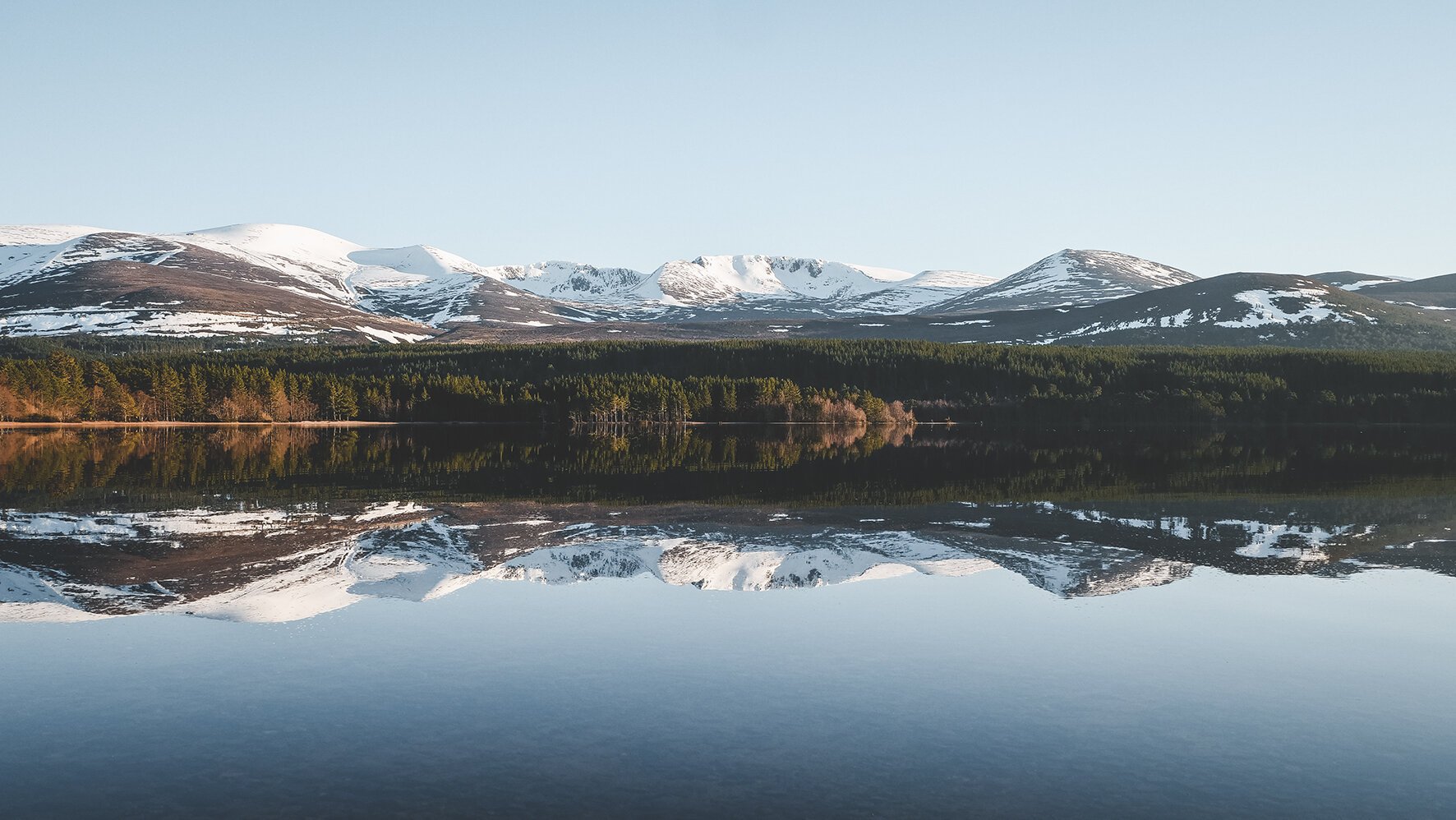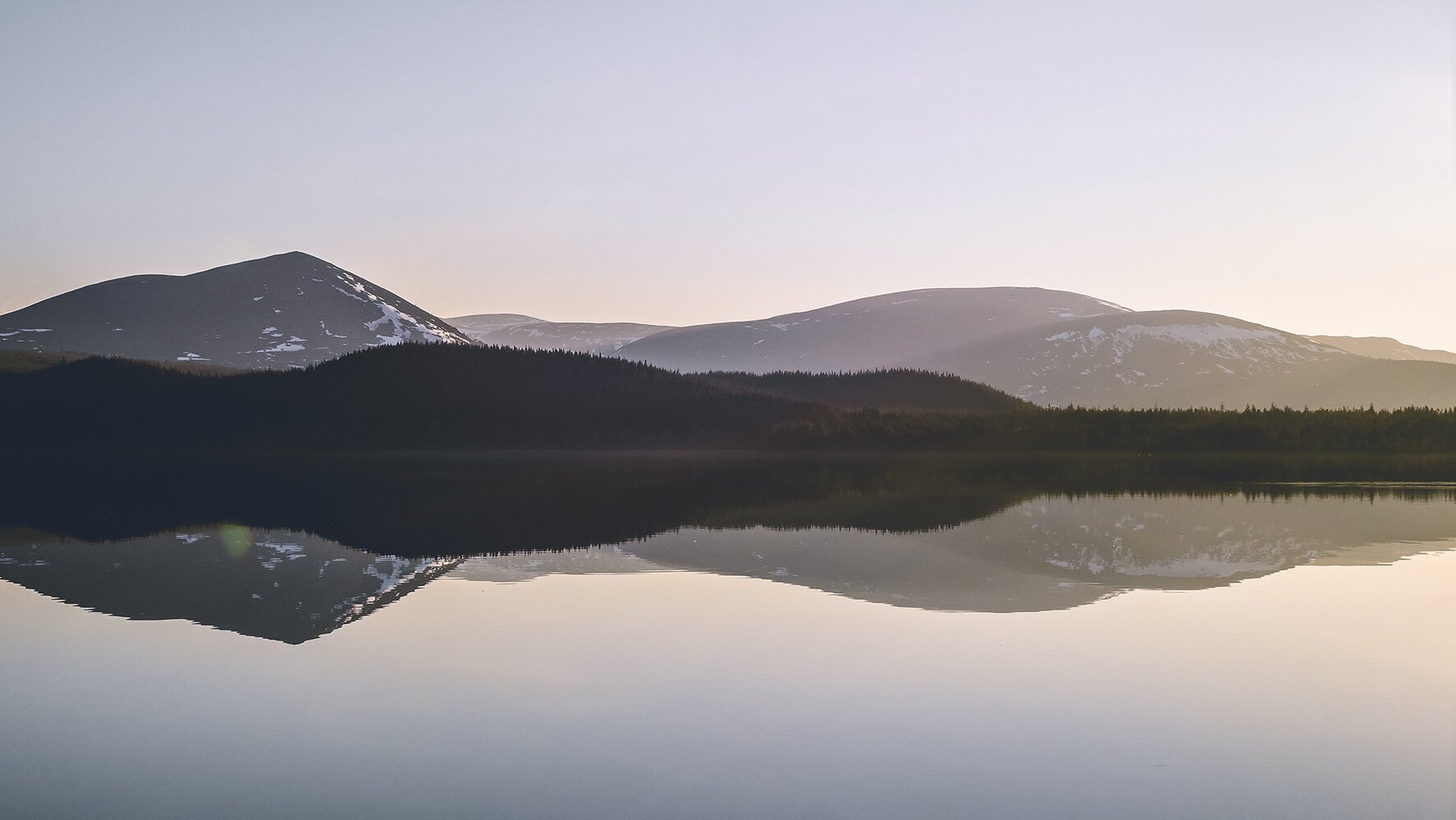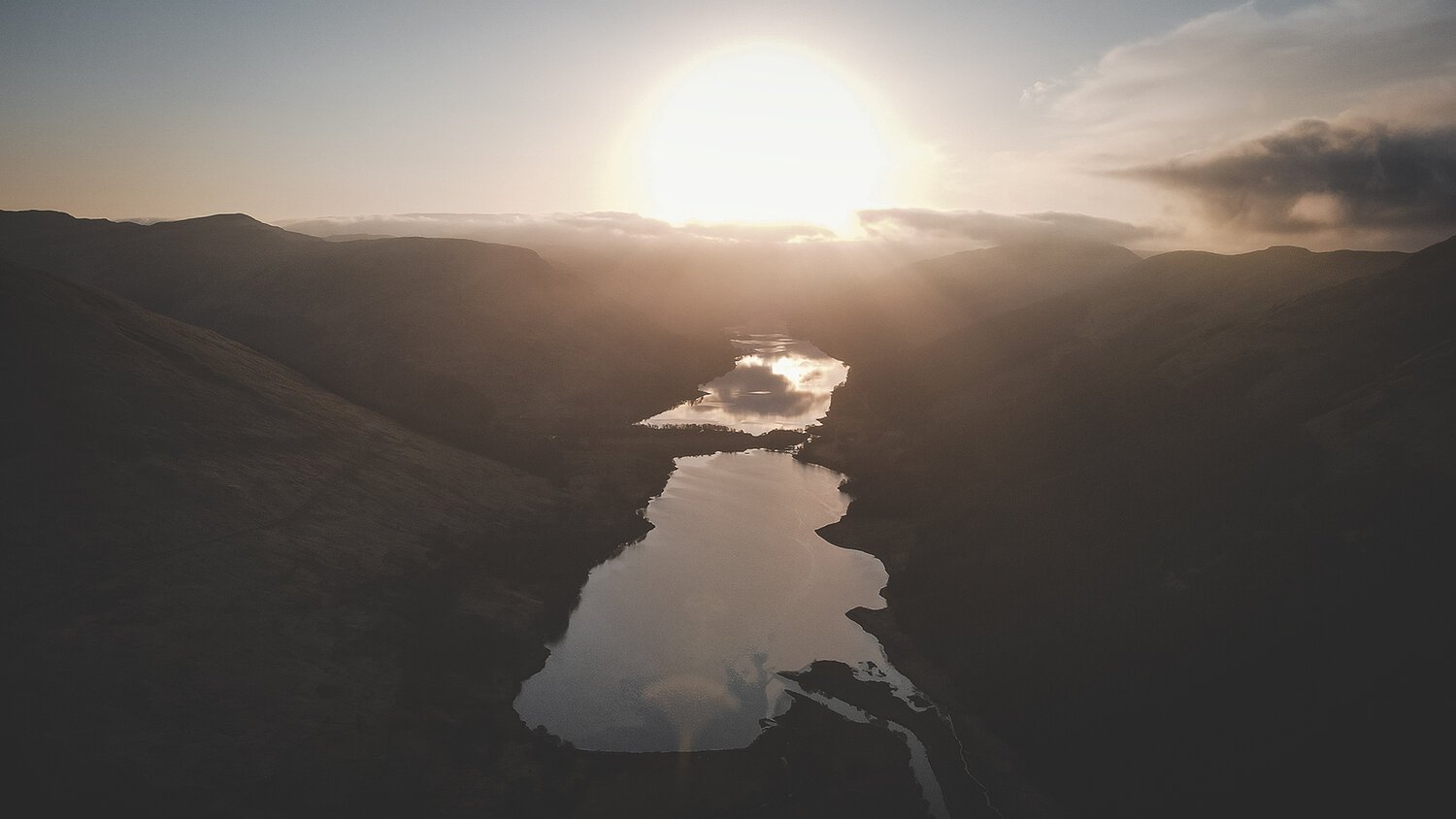Jackson Moyles: Reflection
June 14th, 2021
Joint winner of the first ever season of The Great British Photography Challenge, BBC4, Jackson Moyles is a photographer at the start of his career. Inspired by nature, his epic landscapes take a youthful and contemporary eye to a traditional artistic genre. Here we catch up to Jackson to learn more about his background, what it was like getting feedback from iconic photographer Rankin, and what inspired his latest series of work, Reflection.
POL: Hi Jackson, first up, let’s get the basics - can you introduce yourself and how you would describe your photography?
JM: My name is Jackson Moyles and I would describe myself as a Landscape/Adventure Photographer. The images I take tend to either be incredibly atmospheric and moody or super vibrant and colourful - a stark contrast, I know!
POL: How did you get into photography? What drew you to it as a medium?
JM: My backstory is rather straightforward. As a kid, I was always interested in the creative arts and always felt fulfilment when I finished a set project. Through my childhood I always enjoyed travelling and loved when either family holidays, or walks with friends, took me to new places off the beaten track. I guess I was around seventeen when I got my first camera and my love affair with the lens took off from there.
POL: Is that love for finding locations how you get your inspiration for your work?
JM: I find my inspiration from many sources. Other photographers that I have connected with in recent years have kept me on my toes, pushing me to keep looking for that fresh location and perspective. Although, some of the scenery I witness on a hike is enough to inspire me on its own.
“Some of the scenery I witness on a hike is enough to inspire me on its own.”
POL: So you started off with incredible locations, but what was it about photographing them that hooked you?
JM: I felt it was a great way to document my life really. It drew me as it went hand in hand with my love of adventure. I find photography, soothing, dynamic, satisfying and a way of life.
POL: What’s your process when creating work?
JM: I’m very much a running gun, chasing conditions rain or shine. It’s not my style to be a tripod photographer, I appreciate the art but I’m very much an on the march type of figure. Whether I’m sprinting for a sunrise or sunset, or even a particular mood, I appreciate the imperfections that you may capture from time to time.
POL: What were your expectations going into The Great British Photography Challenge?
JM: I had no expectations really. I knew that I needed to continually develop my style and to do that I needed to take every chance, every opportunity. As well as that, the chance to meet like minded people from different genres of photography and learn from them was a big draw.
POL: What was it like getting feedback from Rankin?
JM: Challenging, electric and insightful. The format of the show is, in my opinion, genius. There is something from every genre and spectrum. I’ve always been confident in my work and while criticism is tough to take at times, I learned you need to be open minded. I did at times disagree with Rankin and the other mentors’ feedback, but I always valued what they had to say. I loved the challenge of hearing so many different thoughts and, in the end, I got so much out of it.
“It’s not my style to be a tripod photographer, I appreciate the art but I’m very much an on the march type of figure.”
POL: If you could do anything again from the show, is there anything you would do differently?
JM: No. I went into the show and stayed in the moment. I didn’t let it run away from me. I thoroughly enjoyed working with the extended team as well - the production team, my fellow photographers and everyone who contributed to the finished show made the time special for me.
POL: Has being part of the show changed how you approach your own work?
JM: In some ways, yes. It really made me really think about the photographer I want to be. From a technical standpoint I came out of the show stronger. And I have now experienced first hand the repercussions that poor communication can have on a shoot - something that I want to make sure is air tight for future endeavours.
POL: Is there anything the audience didn’t see which you found particularly useful?
JM: The audience didn’t see the amount of time Rankin spent with us off camera. He did a lot of mentoring, which really helped us and meant we weren’t ever left out in the cold.
POL: What would your advice be to someone thinking about applying for the next season or to another similar show?
JM: Go for it! Don’t doubt yourself, but, at the same time, be open minded.
“I’ve always been confident in my work and while criticism is tough to take at times, I learned you need to be open minded.”
POL: You had such a journey on the show trying out different types of photography (from fashion to portraiture), but you’re back taking landscapes. Seen as quite a traditional genre, how do you make landscapes contemporary?
JM: The way I make my landscape shots contemporary is by keeping the perspective fresh. Whether that’s by utilising objects in the foreground, focusing on something people wouldn’t normally pay attention to, or just bending the rules of traditional photography slightly - these are all ways how I attempt to modernise the genre.
POL: Your new series of contemporary landscapes is being called Reflection, it’s an evocative title which can be read many ways - what does “reflection” mean to you and how does it represent your art?
JM: I think Reflection is a living explanation of my perspective. An example might be the image I captured on Loch Morlich where the sky has gone pink and yellow. When I look at this image I see the beats of a heart as seen on a heart monitor, the human pulse reflected in nature, but also it draws me back to that single short moment of unadulterated natural beauty. My images capture un-staged moments that wont happen again.
These images are all of a fleeting moment of beauty that moved me, drew me in and left me fulfilled - and I hope this transfers to the viewer.
“These images are all of a fleeting moment of beauty that moved me, drew me in and left me fulfilled.”
POL: How did you find the locations you shot for Reflection? What draws you to a particular place?
JM: My latest series represents me very well for now. I hope it takes the viewer on a journey and they can see the warmth and light, or the cold and desolation I sought. The locations I went to are all areas I have wanted to capture but never came across the ideal conditions. I was lucky enough to witness them this time.
POL: Your landscape images look very prefect, sometimes almost as though computer generated. But they aren’t flat clichés, maybe because they are so clearly full of a sense of the sublime and the epic. How do you capture that emotional gut response in your imagery?
JM: I get a feeling about space and I try and pull that through in my images. I go with my heart.
Often I approach my photography by asking if I was feeling low, what would I like to see? What image could fill the void if I couldn’t go out and see it first-hand? Then I seek out what I would want to see to make me feel better.
POL: Graphically though, your reflection series isn’t purely of representational landscapes, they can often edge into the abstract. Some of my favourite images look almost like Rorschach tests and the forms look different every time I look at the images. What do you see when you look at these works?
JM: I see the Rorschach test, almost inkblot, visual too. But in all my images, fundamentally what you see is what nature offers up. There are times when, for example, I am looking for the perfect moment in a water scene, but then I will capture something entirely different. That’s taught me to examine an image thoroughly during the post-production period, sometimes the magic captured appears after I’ve finished shooting.
“Often I approach my photography by asking if I was feeling low, what would I like to see? What image could fill the void if I couldn’t go out and see it first-hand?”
POL: It’s interesting you mention post-production. You have a great sense of colour and balance in these landscapes, so do you edit your work or is this all in camera?
JM: In this day and age, a lot of the time taking the photo is only 50% of the job done. The colours are always there, so you’ll never find me completely changing the sky. But I like to enhance what’s already there when I feel it adds something to the final image.
POL: Do you have a favourite image of the works your showing in Reflection?
JM: I think I mentioned it earlier, but the ‘Pulse’ I see in the image of Loch Morlich has to be my top image. I wasn’t looking to capture that specifically and I’ve found it’s always the moments you least expect that can sneak up on you and become your favourite. That was certainly the case with this one.
POL: If time and money were no object what project would you love to do?
JM: I’d like to travel to places few people have ventured, in conditions that seem insane. To really adventure with my camera. It would be challenging and in rough conditions I’m sure there’d be moments of regret or longing for the comforts of my insulated home. But that sense of the unknown, and pushing myself, that’s what makes photography fun.
“That sense of the unknown, and pushing myself, that’s what makes photography fun.”
POL: What are you working on now?
JM: It’s still early days in my photography career and as I’ve said, being apart of The Great British Photography Challenge has made me question the route I always thought I would go down. I’ve always enjoyed uncertainty, so for now, there are a few of projects to keep me going, but really I’m just making sure I am in the perfect position to capitalise on any new opportunities that may come my way.
POL: Thanks Jackson, this has been great!
The Great British Photography Challenge is available for catch-up on BBC iPlayer.
About Jackson Moyles
Jackson Moyles, 21, from Fife, is a self-taught landscape photographer who uses his lens to respond to locations and settings with his signature sense of exploration and adventure.
First picking up a camera to pair his twin passions of creative arts and travel, Moyles’ work reflects the sense of wonderlust the photographer feels within nature. His images capturing fleeting moments of perfection that surround us from the natural world.









